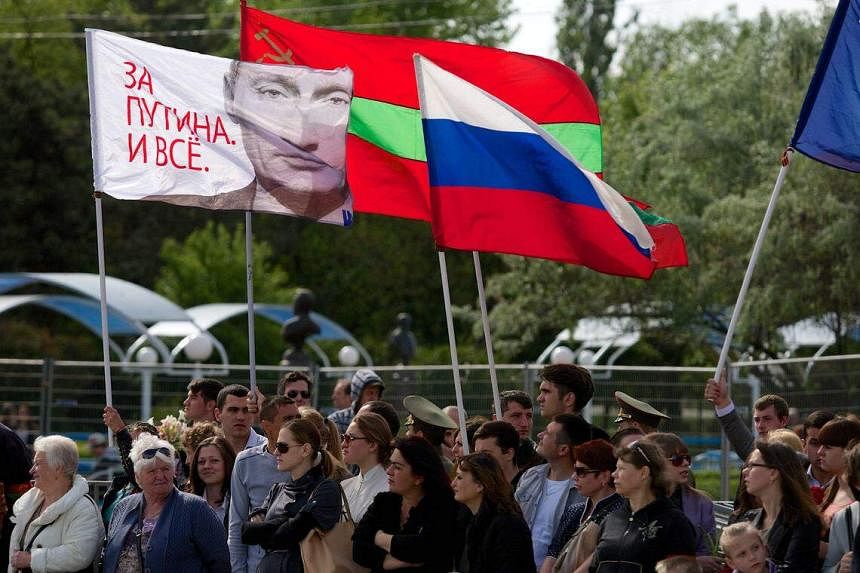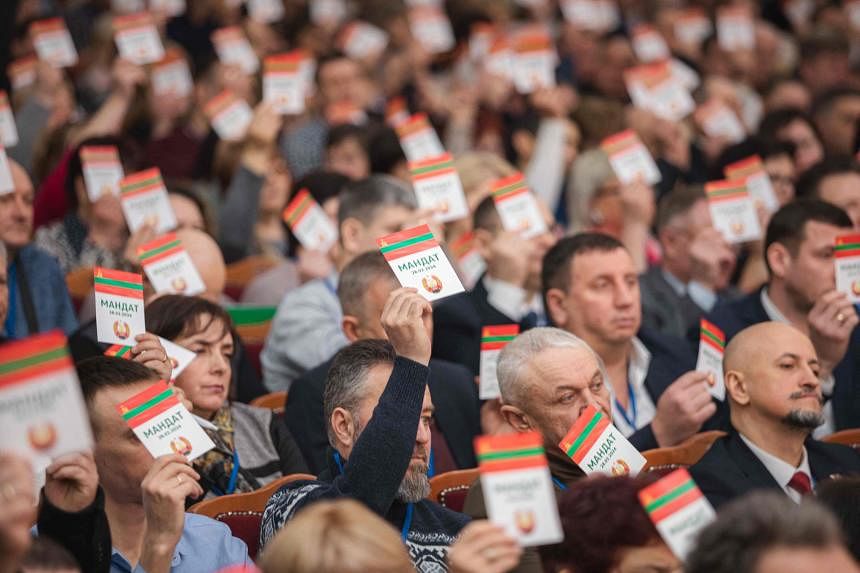CHISINAU, Moldova - Moldovans dismissed talk of tensions on Feb 29, a day after pro-Russian rebel officials in the country’s breakaway region of Transnistria appealed to Russia for “protection”.
Experts, likewise, do not expect the territory to become a new flashpoint in Moscow’s invasion of neighbouring Ukraine anytime soon.
Is Chisinau worried?
Moldova’s government has been quick to reject “propaganda statements” from separatists on the sliver of land, which has been de facto controlled by pro-Russian forces since the collapse of the Soviet Union but is internationally recognised as part of Moldova.
“The Russian Federation, or rather the Kremlin, wants us to be scared... We can’t allow them to do that. We have to keep our peace,” pro-European President Maia Sandu told Jurnal TV on Feb 29, assuring Moldovans they were safe.
At a rare special congress in Transnistria, lawmakers passed a resolution asking Russia’s Parliament to “protect” the region from mounting Moldovan pressure.
Moldovan Deputy Prime Minister Oleg Serebrian also told reporters during a briefing that “nothing spectacular happened in Tiraspol”.
“We were ready to see these kind of messages, alarmist messages from Tiraspol” after Moldova introduced customs duties in January, he added.
On the streets of Chisinau, Moldovans said they were not overly worried.
“We don’t have major concerns,” Mr Igor Druta, 40, an electrician, told AFP. “There are some tensions... but in general we keep calm and move forward thinking positively.”
“We are very much protected,” with the “dastardly war in Ukraine” creating a bulwark for Moldova, 78-year-old retiree Tudor Balinschi told AFP, with tears in his eyes.
Is a Russian invasion likely?
On Feb 28, Russia’s Foreign Ministry said it was one of the country’s priorities to protect “our compatriots”, the residents of Transnistria, adding that it considered “all requests” for help.
But Russian President Vladimir Putin did not mention Transnistria in his annual address to Russian lawmakers on Feb 29.
Several experts told AFP that Transnistria was not a priority for President Putin at the moment, and they did not see signs of an imminent invasion or annexation.
“Vladimir Putin’s Russia is much more focused today on the Ukrainian conflict than any other subject. There is no need for Russia to move the Transnistria map today,” said Dr Florent Parmentier, Moldova specialist at Sciences Po university in Paris.
He added Russia’s policy towards Transnistria has been to use the region “as a vector of influence over the whole of Moldova to try to influence Moldovan political life”.
Why this call for protection now?
Mr Alexandru Flenchea, a former deputy prime minister, said the Feb 28 meeting was “an exclusively local initiative” to get Chisinau to revoke import duties and thwart other economic measures they plan to carry out to “reintegrate” Transnistria.
For Dr Parmentier too, the separatists’ call for help aims to “create leverage” in their discussions with Chisinau.
Russia – which has around 1,500 soldiers permanently stationed in the region – props up Transnistria’s economy with free natural gas.
But the breakaway republic of some 450,000 inhabitants has found itself increasingly isolated from Moscow since the conflict in Ukraine broke out.

Following Russia’s invasion of Ukraine, Moldova – which borders Ukraine and European Union member Romania – is seeking to join the EU and has obtained EU candidate status.
But many of Moldova’s 2.6 million people struggle in one of Europe’s poorest nations.
“What worries me is the future of my child because it’s not a good political situation, and we’re constantly stressed,” Ms Eni Melnic, 32, a fashion designer, told AFP as she pushed her two-year-old son in a pram.
“We always have it in the back of our minds that we have to leave, because we don’t know what tomorrow will bring,” she added. AFP

